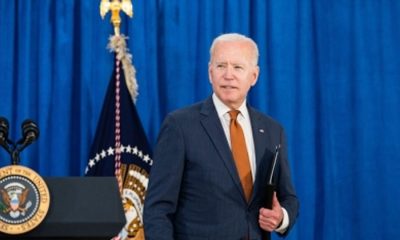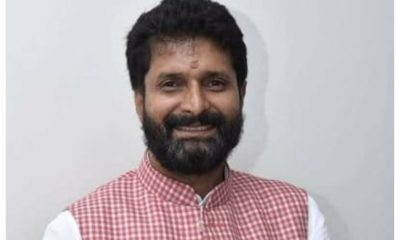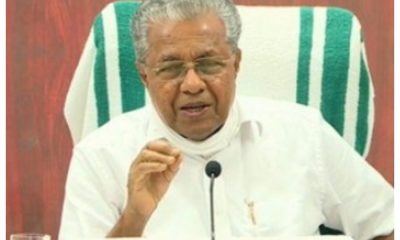International News
Biden’s tour de Saudia Arabia
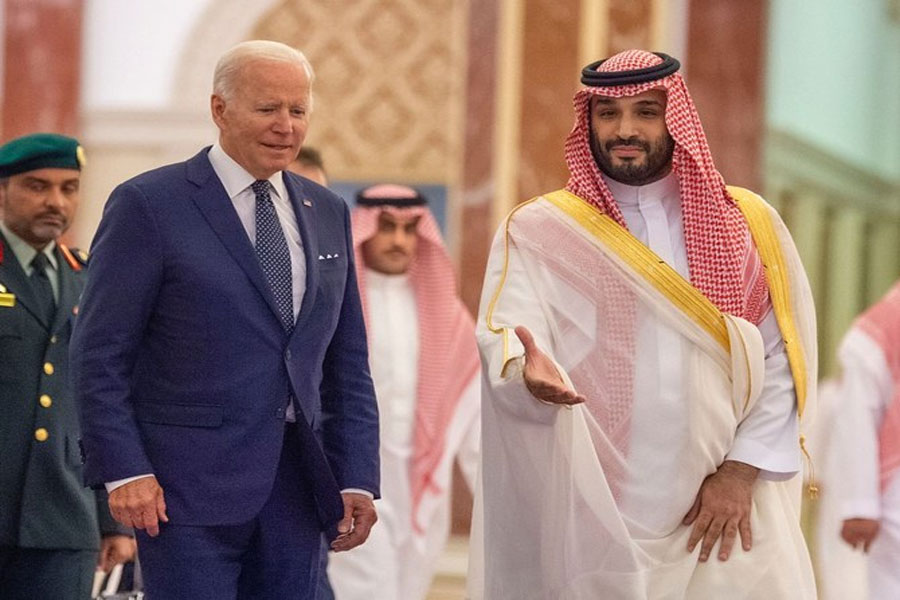
Joe Biden’s west Asian tour should have been utilised to reset the American ties with different regional players and lay foundations for a more robust engagement but the results seem to be rather disappointing.
American President Joe Biden was on a four-day trip to Israel and Saudi Arabia, his first trip to the Middle East since taking office last year, with a lot of expectations about resetting the ties with Saudi Arabia and also giving a new direction to US policies in the Middle East.
The visit started with meetings in Israel to expand security ties and discuss Iranian belligerence in the region. He next went to Jeddah, Saudi Arabia, where he attempted to reassure regional leaders – and the rest of the world – that his administration remains committed to actively engaging in the Middle East and
counter any Russian or Chinese plans to expand their geopolitical influence.
US-Saudi ties
Coming in the backdrop of the continuing Russia-Ukraine war and spiralling global oil prices, the visit was also seen as a rapprochement by the US President to the Saudi Crown Prince Mohammad bin Salman (MbS), whom he blamed for the assassination of Saudi journalist Jamal Khashoggi, and thus pave the way for softening the Saudi stance on increased oil production.
However, the manner in which the two leaders greeted each other with a fist bump has been criticised both by fellow Democrats and Republicans, due to its undiplomatic nature and also as a middle ground to thaw the ice, perhaps on the advice of their key lieutenants.
Also the version given by Biden and Saudis as to whether the President admonished MbS seem to vary, thus indicating that the President was ready to give up his old stance for the Saudi agreement to increase its oil production, though ultimately he got no such assurance.
The meetings in Jeddah largely seemed to go along with the planned reset of the US relationship with the kingdom, and Biden announced several new areas of cooperation aimed at reshaping US-Saudi relations.
However, the President did strike an optimistic note that regional leaders would soon take action given that the next OPEC meeting will take place in early August, after his parley with the Gulf Cooperation Council (GCC) leaders in Riyadh.
US-Iran Ties
Biden is also under pressure to counter Iran’s growing influence in the region, and during the visit he made a commitment to the U.S. playing a large role in the Middle East for years to come.
In Israel, Biden repeatedly vowed to ensure that Iran does not acquire a nuclear weapon and said he believed diplomacy remained the best avenue to keep Tehran from obtaining one.
Biden has pushed for a revival of the Iran nuclear deal, which former president Donald Trump withdrew the US from in 2018, as he faces increasing pressure from key Middle East allies to produce a plan to contain Iran. But hopes appear to be fading that a deal will materialise, and the President acknowledged that the US is not going to wait forever; for a response from Iranian leadership.
US-Israel ties
America’s relationship with Israel has also been strained in recent years. Obama and former Israeli President Benjamin Netanyahu shared a strained relationship over Palestine, and the 2015 nuclear deal with Iran also soured the relations.
But the Biden administration’s renewed efforts to re-implement the Iran nuclear deal, coupled with warnings over Israel’s expansion of settlements in the West Bank, have further complicated US-Israeli relations again.
In addition, US is also worried about the growing Russian and Chinese influence in the region. Iran has cosied-up to Russia significantly in recent years and the Chinese have made themselves more useful both to the Saudis and Emiratis in defence and trade sectors.
The new approach
His critics say that Biden to an extent continued with the old American baggage. And if he really wants to rest the American foreign policy for West Asia and its Arab allies, it will have to adopt a more proactive and less preaching stance with a new perspective, too.
Biden himself said during the trip that he continues to believe that diplomacy is the best way to achieve a new outcome. But to achieve that outcome, he’ll have to pursue soft-diplomacy also.
Additionally, the US should try to give-up the mentality to solve every problem or conflict with military means and tactics, instead it should try to focus and see the alternative opportunities available to help the people of the Middle East achieve greater freedom and prosperity which they desire.
For this, the renewed American focus should prioritise its interests through better security management for itself and its allies. Ensuring that terrorist threats from the Arab world should remain a focus of US engagement in the region.
Further, it should focus on economic welfare of the region. The Middle East’s energy resources remain critical to the global economy. In addition, the US should try to foster lasting economic ties with emerging centres of innovation in the region.
Additionally, it should focus on values and rights, which the United States supports i.e. religious freedom, women’s rights, and freedom of expression.
These should be promoted through its soft diplomacy or public diplomacy channels. There is a huge aspiration amongst the people of the region to fill-up the chasm between what is available and what they wish for, ensuring dignity and prosperity for all.
At the same time, it should try to engage more with the young generation amongst the Arabs, the 13 th edition of the Arab Youth Survey found that over 90 per cent of Saudi youth, who form nearly two-thirds of the country’s population, see the US as an ally. This should be its target audience.
It should focus on boosting bilateral ties in new areas such as tourism, information technology, and clean energy and focus less on energy sector.
It should launch joint initiatives on human security challenges such as in the health sector, economic security, human rights, and climate change. It should engage in renewed diplomatic efforts to end conflicts in Syria, Yemen, and Libya.
It should try to contain and engage Iran with diplomacy backed by a balanced regional security strategy.
Renewed diplomacy with Iran must include America’s regional security partners in order to produce lasting results. It should strive for greater regional integration with renewed and inclusive diplomacy on the Arab-Israeli front, too.
Overall, the visit failed to accomplish what Biden wanted to achieve in the region, and for any success the US will have to fully recalibrate its policy towards the Middle East, Iran and Israel in the short-term for long-term gains and keeping the Russians and Chinese at bay in the region.
(Asad Mirza is a political commentator based in New Delhi. He writes on Muslims, educational, international affairs, interfaith and current affairs. The views expressed are personal)
Business
India, Canada discuss ways to boost bilateral trade, promote investments
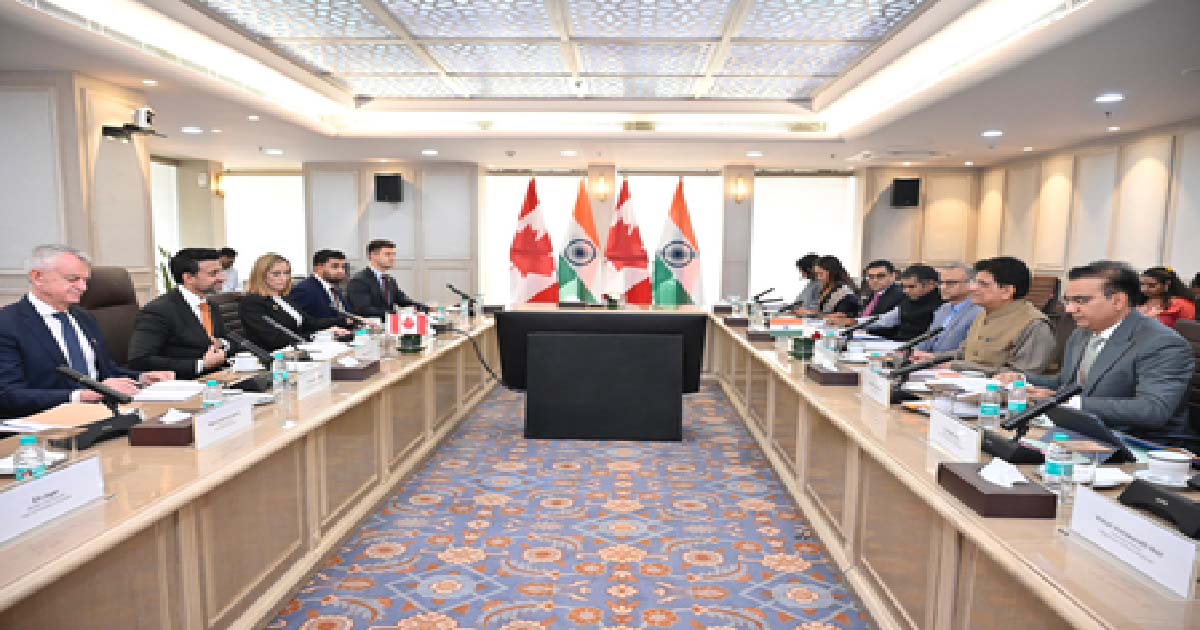
New Delhi, Nov 13: Commerce and Industry Minister Piyush Goyal and Maninder Sidhu, Canada’s Minister of International Trade, discussed ways to further boost bilateral trade and promote investments, it was announced on Thursday.
Sidhu is in India to find opportunities to advance trade and investment linkages between the two nations.
“It was a pleasure to co-chair the 7th India-Canada Ministerial Dialogue on Trade and Investment as part of the New Roadmap 2025 along with @MSidhuLiberal, Canada’s Minister of International Trade,” Goyal posted on the X social media platform.
The minister further stated that they discussed “avenues to strengthen bilateral trade, promote investments and deepen cooperation between our countries”.
During his India visit, Sidhu is set to promote Canada’s commitment to supporting and growing the well-established commercial ties shared by Canada and India, including artificial intelligence, clean technology and digital industries, and explore new opportunities for partnerships that benefit workers and businesses in both countries.
“This visit to India will reinforce Canada’s commitment to diversifying our trade relationships and attracting new investment,” an official statement quoting Sidhu said. “As one of the fastest-growing major economies, India offers significant opportunities for Canadian businesses and workers. Our commercial ties continue to expand — bilateral trade surpassed $30 billion in 2024 — and there is even greater potential ahead,” the statement added.
India is a key partner as Canada strengthens its economic links in the Indo-Pacific region under a comprehensive strategy for the region. In 2024, India was Canada’s seventh-largest goods and services trading partner, with two-way trade valued at $30.9 billion.
Meanwhile, External Affairs Minister (EAM) S. Jaishankar and his Canadian counterpart, Anita Anand, held discussions on strengthening cooperation across key sectors, including trade, energy and security. Both leaders met on the sidelines of the G7 Foreign Ministers’ Meeting in Niagara.
EAM Jaishankar also praised the progress made under the New Roadmap 2025, aimed at enhancing bilateral ties between India and Canada and expressed hope for rebuilding a stronger partnership.
Crime
Banned drugs worth Rs 45 crore smuggled from Myanmar seized in Mizoram; two held

Aizawl, Nov 13: The Assam Rifles, in a joint operation with Mizoram Police, recovered highly addictive Methamphetamine tablets valued at Rs 45 crore from Saitual district and arrested two drug peddlers, officials said on Thursday.
A defence spokesman said that based on specific intelligence about the movement of drugs on the Ngopa-Saitual road in northern Mizoram’s Saitual district, a joint operation was launched on the intervening night of Wednesday and Thursday.
The team of Assam Rifles established a vehicle check post, which intercepted the suspected vehicle carrying drugs at Ngopa.
During the search operation, 15 kg of banned Methamphetamine tablets worth Rs 45 crore were recovered from two persons — Rabizul Haq and Naasiruddin, both residents of Barpeta in western Assam.
Recovered contraband, smuggled from Myanmar, along with apprehended individuals and their vehicle, were handed over to the Saitual district Police for detailed investigation and further legal proceedings.
As part of its continuous efforts to curb the spread of the drug menace in Mizoram, the Assam Rifles conducted yet another successful anti-narcotics operation, the spokesman said.
Meanwhile, the Assam Rifles, in a joint operation with Assam Police, recovered heroin valued at Rs 4.65 crore from near Jhujang Pahar in Cachar district of southern Assam on November 11.
The November 11 drug seizure took place within two days in the same Cachar district.
The Assam Rifles, in a similar joint operation with Assam Police, recovered methamphetamine tablets worth Rs 6 crore on November 9. The banned methamphetamine tablets, also known as Yaba or party tablets, contain a mixture of methamphetamine and caffeine and are commonly referred to as the ‘crazy drug’.
The highly addictive drugs are very popular among drug addicts in India, Bangladesh and the neighbouring countries.
Notably, Myanmar shares a 1,643-km-long unfenced border with four Northeastern states — Mizoram, Arunachal Pradesh, Manipur and Nagaland — which serve as a key transit point for drugs, particularly heroin and methamphetamine tablets.
At least six of the 10 districts of Mizoram — Champhai, Siaha, Lawngtlai, Hnahthial, Saitual and Serchhip — share a 510-km border with Myanmar. Mizoram, Manipur, Tripura and southern Assam have turned into major corridors for drug smuggling from Myanmar, with the illegal consignments being ferried to other parts of the country and abroad.
International News
Nearly 25 million people facing acute food insecurity in Congo: UN
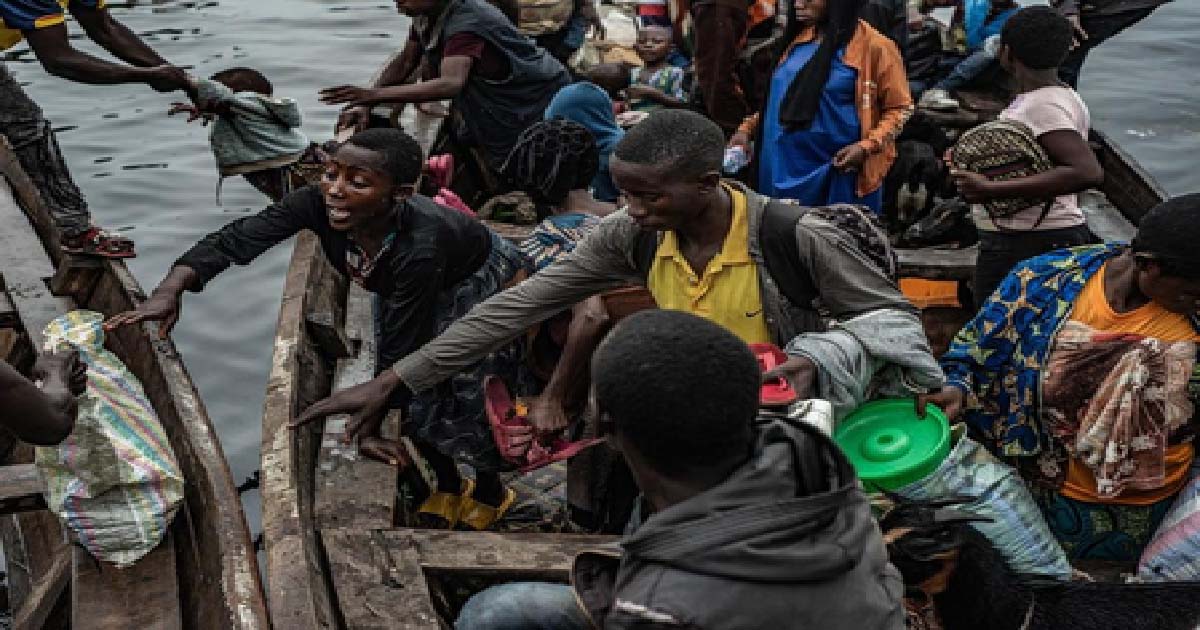
United Nations, Nov 13: Nearly 25 million people, over 20 per cent of the population, are facing high levels of acute food insecurity in the Democratic Republic of the Congo (DRC), a UN spokesperson said.
The DRC remains one of the countries most affected by food insecurity, with the situation particularly severe in the east, said Stephane Dujarric, spokesperson for the UN secretary-general, at a daily briefing on Wednesday.
According to the latest Integrated Food Security Phase Classification analysis, the number is projected to rise to nearly 27 million people in the first half of 2026, he said.
Dujarric said the UN Office for the Coordination of Humanitarian Affairs (OCHA) remains deeply concerned about continued attacks against civilians in Beni and Lubero territories in North Kivu and also in Ituri province, with more than 1,000 people reportedly killed in the two provinces since the beginning of this year.
The impact on health services has been devastating, with at least six facilities attacked since the beginning of 2025 and a total of at least 28 health sites affected by armed attacks since 2024, said the spokesperson.
He said OCHA reiterated its call on all parties to respect international humanitarian law and ensure the protection of civilians and civilian infrastructure.
Since January, the security situation in eastern DRC has worsened sharply amid renewed fighting involving the March 23 Movement rebel group, which seized several key towns, including Goma and Bukavu, Xinhua news agency reported.
Humanitarian agencies say the escalating violence has displaced hundreds of thousands of civilians, deepening an already dire crisis.
Earlier on October 14, the government of the DRC and the March 23 Movement (M23) rebel group had signed an agreement in Doha to establish a ceasefire monitoring and verification mechanism, under the facilitation of Qatar.
-

 Crime3 years ago
Crime3 years agoClass 10 student jumps to death in Jaipur
-

 Maharashtra1 year ago
Maharashtra1 year agoMumbai Local Train Update: Central Railway’s New Timetable Comes Into Effect; Check Full List Of Revised Timings & Stations
-

 Maharashtra1 year ago
Maharashtra1 year agoMumbai To Go Toll-Free Tonight! Maharashtra Govt Announces Complete Toll Waiver For Light Motor Vehicles At All 5 Entry Points Of City
-

 Maharashtra1 year ago
Maharashtra1 year agoFalse photo of Imtiaz Jaleel’s rally, exposing the fooling conspiracy
-

 National News1 year ago
National News1 year agoMinistry of Railways rolls out Special Drive 4.0 with focus on digitisation, cleanliness, inclusiveness and grievance redressal
-

 Maharashtra1 year ago
Maharashtra1 year agoMaharashtra Elections 2024: Mumbai Metro & BEST Services Extended Till Midnight On Voting Day
-

 National News1 year ago
National News1 year agoJ&K: 4 Jawans Killed, 28 Injured After Bus Carrying BSF Personnel For Poll Duty Falls Into Gorge In Budgam; Terrifying Visuals Surface
-

 Crime1 year ago
Crime1 year agoBaba Siddique Murder: Mumbai Police Unable To Get Lawrence Bishnoi Custody Due To Home Ministry Order, Says Report





